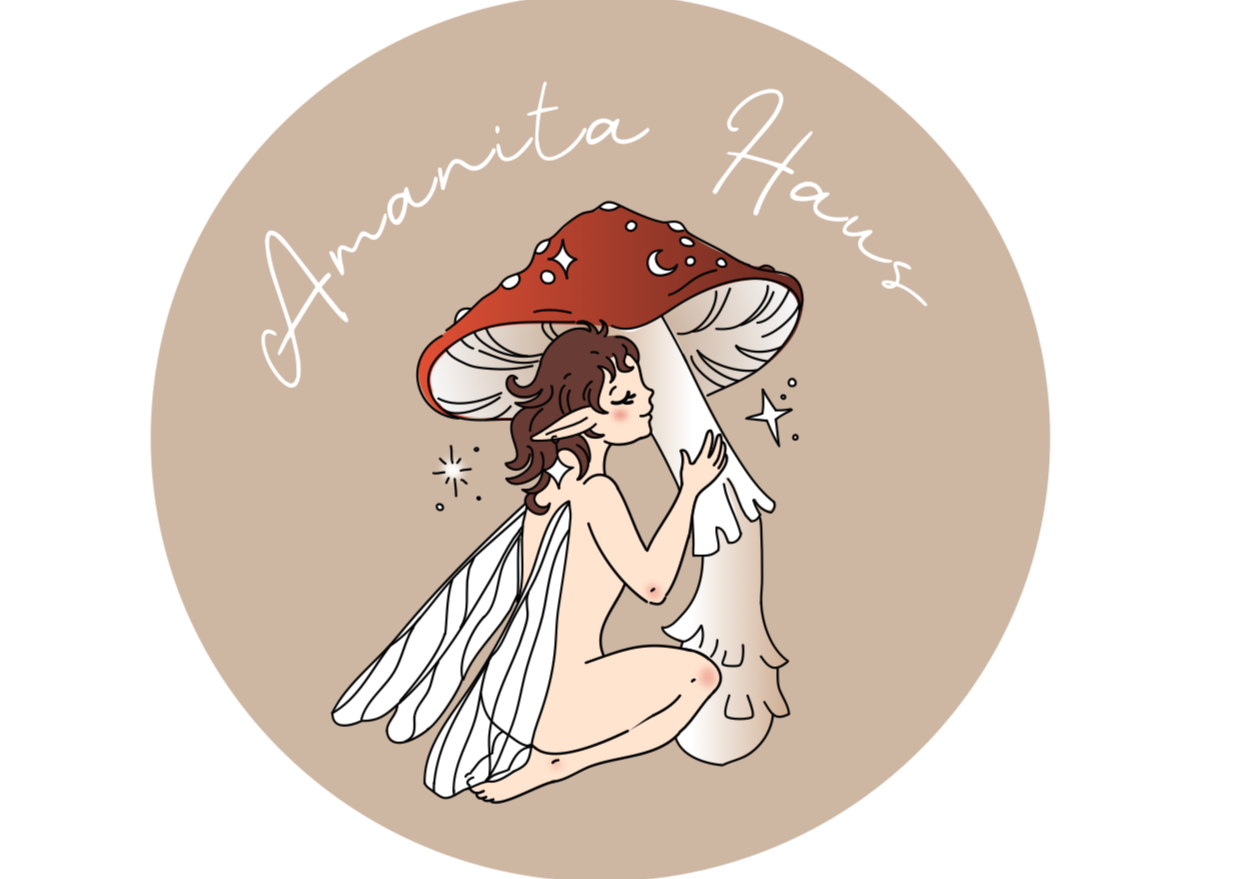Mikaela de la Myco is a mother, mushWOMB educator, folk herbalist, community organizer, ceremony facilitator, citizen researcher, and sacred hoe with over a decade of experience in ancestral healing modalities, sacred earth medicine, full-spectrum womb care, psychedelic family life, and advocacy for survivors of harm within the wellness community.
As the founder of mushWOMB, Mikaela provides education and support for birthing people, queer folks, and BIPOC within sacred earth medicine spaces. She is also the caretaker of the Matriarchal Alliance for Accountability and Transparency (MA’AT), where she works to support survivors and advocate for cooperative, community-led healing. Across all of her work, Mikaela acts as a catalyst for change and remains committed to the movement to rematriate entheogens.
We had the privilege of speaking with Mikaela live on September 24th, and the conversation was deeply insightful. She shared extensive knowledge about unconventional and ancestral healing practices, particularly through the Mothers of the Mushroom Project—a citizen-research initiative she developed alongside fellow researchers. The project gathers stories from over 400 mothers who engaged with psilocybin at various stages, from pre-conception through postpartum, an area that remains largely unexplored by mainstream scientific research.
Due to the ethical limitations of lab-based studies involving pregnant and postpartum populations, Mikaela and her collaborators chose an approach grounded in lived experience. The project centers survey-based storytelling from mothers who navigated these practices intuitively, often in the face of stigma and fear.
Through this research, Mikaela has observed many positive outcomes reported by participating mothers. She hopes this growing body of work will encourage broader scientific curiosity and compassionate inquiry into tools that have long been dismissed or ignored. As she notes, “We stand on the shoulders of giants.” While maternal mushroom use is not new across cultures, Western frameworks of shame and stigma have often silenced these conversations. Mikaela honors those who made thoughtful, informed choices rooted in folk medicine traditions and Indigenous cosmologies.
She also points to the striking lack of formal research in this area, citing that only one animal study on psilocybin and maternal outcomes exists from over a decade ago. Given the limited effectiveness of current treatments for postpartum depression and anxiety, Mikaela believes it is vital to explore alternative approaches with care, humility, and ethical responsibility. Her findings suggest that many participants experienced meaningful relief, highlighting the need for further study rather than continued silence.
Even within progressive psychedelic spaces, Mikaela continues to encounter stigma surrounding mothers and entheogens. She emphasizes that avoiding these discussions leads to poor literacy, increased harm, and fewer informed choices. While acknowledging that these practices are not for everyone, she advocates for transparent, community-based knowledge-sharing that includes both benefits and challenges.
As a folk herbalist, Mikaela also speaks passionately about the relationship between herbs, sensuality, and nervous-system regulation. Her work often incorporates ritual smoking blends, yoni steaming, and nutritive nervine herbs such as oat straw, lemon balm, passionflower, and St. John’s wort—especially when supporting mothers and trauma survivors.
Mikaela has found that creating intentional, sensual spaces can be profoundly healing. Practices such as yoni steaming, particularly when paired with altered states of consciousness, have helped many womb-carrying people shift their relationship to embodiment, safety, and pleasure.
She also teaches on altered states of consciousness and the historical intersections of ancient ritual, religion, and entheogenic plants. Mikaela acknowledges the longstanding presence of plants and substances such as amanita muscaria, blue lotus, henbane, and opium in sensual and ceremonial contexts, emphasizing respectful, informed engagement rather than sensationalism.
Mikaela remains accessible for dialogue, particularly with mothers and survivors seeking grounded, harm-reduction-oriented conversations. She also offers long-form educational experiences that weave together somatic practices, herbalism, self-massage, creative expression, and community-based healing—designed to support people with or without medicine.
For further information, visit mushwomb.love, or find her on Instagram @mamadelamyco.


